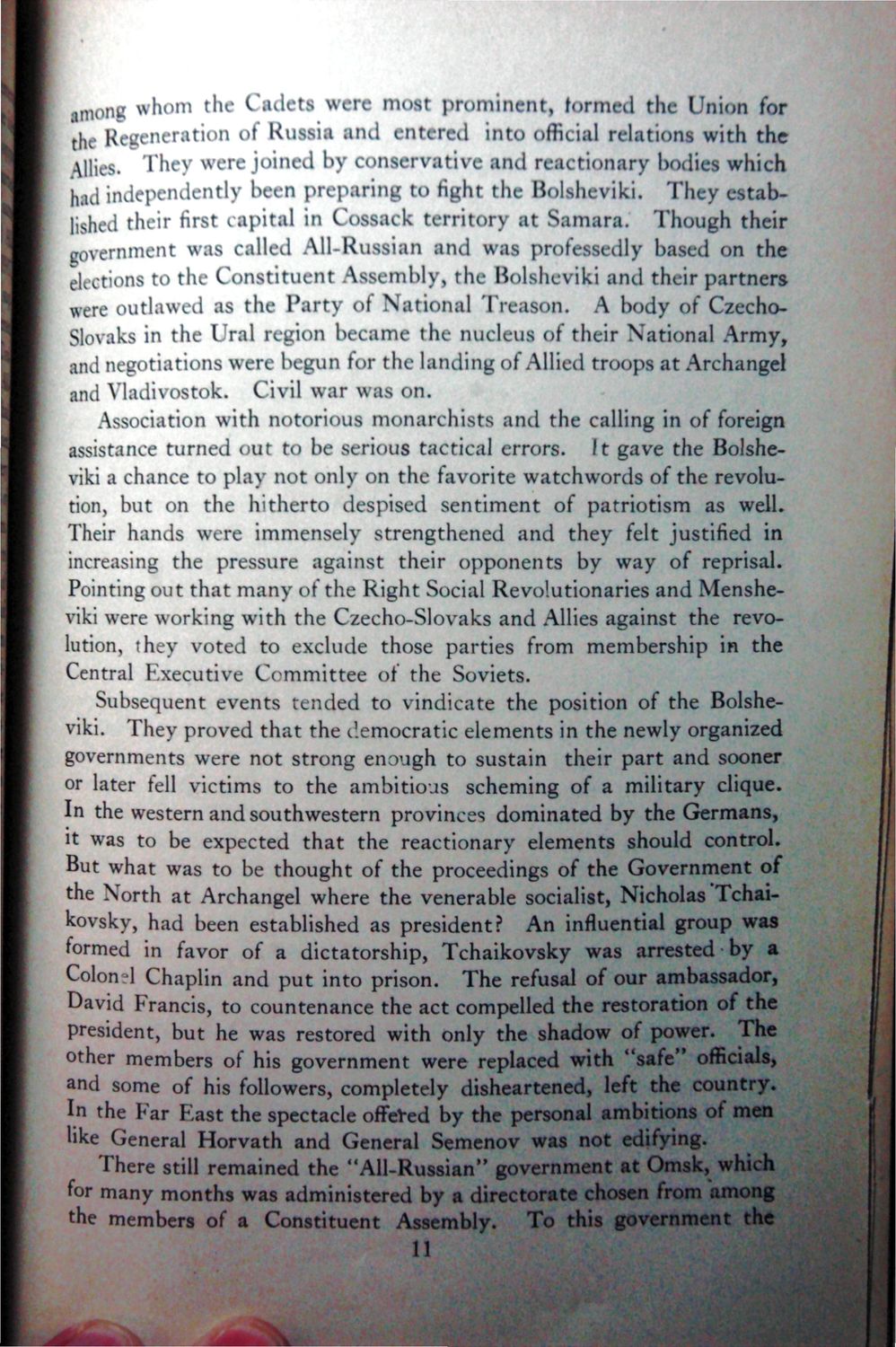| |
| |
Caption: War Publications - WWI Compilation 1923 - Article 22
This is a reduced-resolution page image for fast online browsing.

EXTRACTED TEXT FROM PAGE:
% among whom the Cadets were most prominent, formed the Union for into official relations with the Regeneration Allies. They were joined by conservative and reactionary bodies which had independently been preparing to fight the Bolsheviki. They established their first capital in Cossack territory at Samara. Though their government was called AU-Russian and was professedly based on the elections to the Constituent Assembly, the Bolsheviki and their partners were outlawed as the Party of National Treason. A body of Czechoslovaks in the Ural region became the nucleus of their National Army, and negotiations were begun for the landing of Allied troops at Archangel and Vladivostok. Civil war was on. Association with notorious monarchists and the calling in of foreign assistance turned out to be serious tactical errors. It gave the Bolsheviki a chance to play not only on the favorite watchwords of the revolution, but on the hitherto despised sentiment of patriotism as well. Their hands were immensely strengthened and they felt justified in increasing the pressure against their opponents by way of reprisal. Pointing out that many of the Right Social Revolutionaries and Mensheviki were working with the Czecho-Slovaks and Allies against the revolution, they voted to exclude those parties from membership in the Central Executive Committee of the Soviets. Subsequent events tended to vindicate the position of the Bolsheviki. They proved that the democratic elements in the newly organized governments were not strong enough to sustain their part and sooner or later fell victims to the ambitious scheming of a military clique. In the western and southwestern provinces dominated by the Germans, it was to be expected that the reactionary elements should control. But what was to be thought of the proceedings of the Government of the North at Archangel where the venerable socialist, Nicholas'Tchaikovsky, had been established as president? An influential group was formed in favor of a dictatorship, Tchaikovsky was arrested by a Colon! Chaplin and put into prison. The refusal of our ambassador, David Francis, to countenance the act compelled the restoration of the power. The placed and some of his followers, completely disheartened, left the country. In the Far East the spectacle offered by the personal ambitions of men like General Horvath and General Semenov was not edifying. There still remained the "All-Russian" government at Omsk, which for many months was administered by a directorate chosen from among the members of a Constituent Assembly. To this government the 11 Vh _ _ A... ^ * A ^ 4 U • ft A 4 S ft #> #% *% M A •*% •• 4ftfcft*A * 4 . . . k A i I*. . . ^ 1 1 .*.!—.— _ . I . 1
| |